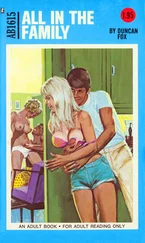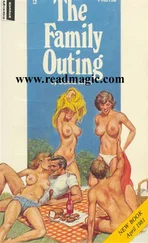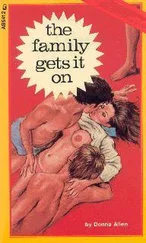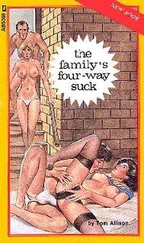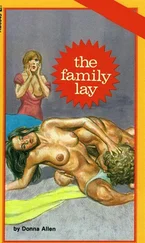“Justine, wait! Can you put the brakes on and not overreact? Think about it: it’s getting dark. People draw blinds and curtains when it gets dark, don’t they? Come on, Figg—looks like we’re going in.”
“Have you ever known Ellen to notice that the curtains need drawing?”
“I don’t know.”
“I do.” I hurry ahead. Whatever is about to happen, I’d rather Alex and Figgy stayed in the garden, but I can hardly stop my husband from entering his own house. “Ellen never touches a blind or a curtain—not in her bedroom, not anywhere. I do it. As you can see, I’m not inside the house at the moment. Which means George Donbavand must have—”
“Justine, you’re going off at the deep end for no—”
“On his first visit to my house, he’s seen fit to close the blinds and curtains in two rooms. Why?”
“I don’t know. Let’s stretch the boy on a rack until he tells us, shall we?”
I run into the house through the open front door. “Ellen? Ellen!”
“Hi, Mum,” she calls out.
This house is too big. I can’t get to the kitchen quickly enough. When I do, she isn’t in it. “Ellen? Where are you?”
“Upstairs, with George. In my bedroom!”
In her bedroom with a remarkably-civilized-for-fourteen boy from a severely dysfunctional family, with the curtains closed. Closed by him.
Remarkably civilized means unusually mature—intellectually, and perhaps sexually too.
“I’m coming up!” I yell. I try not to look at Alex but still manage to see him shaking his head at the spectacle I’m making of myself.
Ellen’s door is wide open. She and George are sitting on the floor with glasses of orange juice beside them and a Monopoly board between them.
Curtains closed, door open. What does that mean? Did they only open it when I called Ellen’s name? They look as if they’ve been sitting like this for a while; there’s no sign from either of them of recent exertion, they’re both fully clothed . . .
Alex was right. They’re playing Monopoly.
George springs to his feet and walks toward me, holding out his hand. I shake it. “Ellen’s mum,” he says, with a wide smile. “It’s a great pleasure and an honor to meet you. You have a supremely brilliant daughter who’s about to beat me at Monopoly.”
Ellen giggles. Her eyes are bright, her cheeks pink.
“It hardly seems fair, when I’m the one who brought the game. I won’t be making that mistake again. What a wonderful house you have, incidentally.”
“Thank you.” I have to say something. “George, did you . . .” What am I doing? I can’t ask him, but I have to know.
Alex appears at the top of the stairs. This must be how escaped lions feel when their tamers hove into view.
“Do please ask, whatever it is,” says George eagerly. “Ask away!” He’s got a wide, square face, fine golden-brown hair, thin lips, big eyes that I’m trying not to stare at. It’s the irises. Instead of circles of color, they look more like hollow cylinders—curved blue surfaces and gray interiors. It’s as if they go back a long way into his head, like tunnels down which the black pupils of his eyes are falling.
I clear my throat and say, “It’s nothing, really.” George’s willingness to be grilled makes me feel guilty.
“Oh, do ask, or I’ll wonder for ever ,” he says theatrically. “I’m insatiably curious.”
“In that case you have something in common with my wife,” Alex tells him.
“I was going to ask you if you closed the curtains. Ellen’s window.”
You see, George, I had a peculiar feeling in this room recently. I thought, “There’s something wrong here—something to do with the window.” And I couldn’t work out what it meant. Still can’t. And Ellen never closes her curtains, but here they are: closed.
Malachy Dodd was alive on one side of that window and dead on the other. But he’s not real, is he?
“Oh. Yes, I did indeed,” says George. “It was getting dark.” His smile has vanished and he looks stricken. “Oh—should I not have done that? I know some households like to leave curtains open day and night. I come from a family that closes them as soon as the light starts to fade, but maybe you’re different?”
“It’s fine, George,” says Ellen contentedly. Everything is ideal in her world at this moment. She looks . . . joyful is the only word I can think of that comes close to describing it. “Mum always closes the curtains when it gets dark. Don’t you, Mum?”
She’s not angry with me for asking an embarrassing question. She’s too elated; resentment would be impossible.
“Yes, but I’m in someone else’s house,” says George, his brow still furrowed. “Your mother’s right. I shouldn’t have touched the curtains without asking.” He turns back to me. “I should confess that I also lowered the blind in the kitchen, when Ellen sent me down to get orange juice. Unilaterally, without permission. I’m so sorry. What must you think of me?”
I’m thinking more questions: Why lower a blind in a room that you’re only going to be in for a minute? Where do his parents think he is?
He speaks like a fussy old retired colonel with a monocle.
And that surprises you? After all you’ve heard about his family life, you expected him to be a normal kid, playing Grand Theft Auto on his Xbox?
“Don’t give it another thought, George,” says Alex firmly. “It’s fine. Helpful, in fact. Isn’t it, Justine?”
“Yes. Very. Thank you, George.” I smile, feeling a stab of pity for this child who obviously wants so much to be liked and approved of.
Instantly, he produces a broad grin of his own to mirror mine and says, “It’s cozier if you keep the darkness out, I think.”
“I agree,” says Alex. His deliberately jolly tone annoys me. He’s trying to compensate George for what he sees as my unreasonableness.
“My house should be cozy, as it’s a little cottage, but it isn’t at all. I hate it.”
“You . . . you hate your house?” I say.
“Oh, I don’t mind the building itself. It’s the people in it that are the problem. They’re positively unnerving. Every day they unnerve me.” He pronounces every word loudly and deliberately, like an entrant in a diction competition performing before the judges. “That’s another reason I closed the blind and the curtains. But we don’t need to go there. In fact, we shouldn’t.”
I look at Ellen, hoping for a clue. She’s deliberately avoiding my eye. Alex has fallen silent.
Wonderful. The conversation’s taken a turn for the awkwardly unfathomable, and suddenly I’m its sole custodian.
“Who unnerves you?” I ask. “Are you talking about your family?”
“Justine, I don’t think he wants to talk about—”
“Hell, yes, my family!” George laughs and rolls his eyes, giving the lie to Alex’s tactful warning. “They’re a sorry bunch. I’m the only normal one of the four of us. Ellen is so lucky to have you two—loving, reasonable parents.”
I have no idea what to say. I’ve known this boy less than five minutes.
“And you’re lucky to have her, and so am I,” George goes on. “Even if she does beat me at Monopoly.”
“I haven’t yet,” says Ellen. “Let’s carry on playing. You two can go downstairs.”
“George . . . you said something about another reason you closed the blind and curtains?”
“Mum, you’re obsessed,” says Ellen.
“It’s all right,” says George. “Yes, I didn’t want to be seen.”
“By . . . ?” I ask.
“The secret police, otherwise known as my dad. Our house is halfway up the hill on the other side of the river, directly opposite you. I don’t think he’d be able to see me in here from there, but I didn’t want to take the risk. He doesn’t know I’m here, you see. I’m not allowed to go anywhere. You can imagine how oppressive I find it!”
Читать дальше


